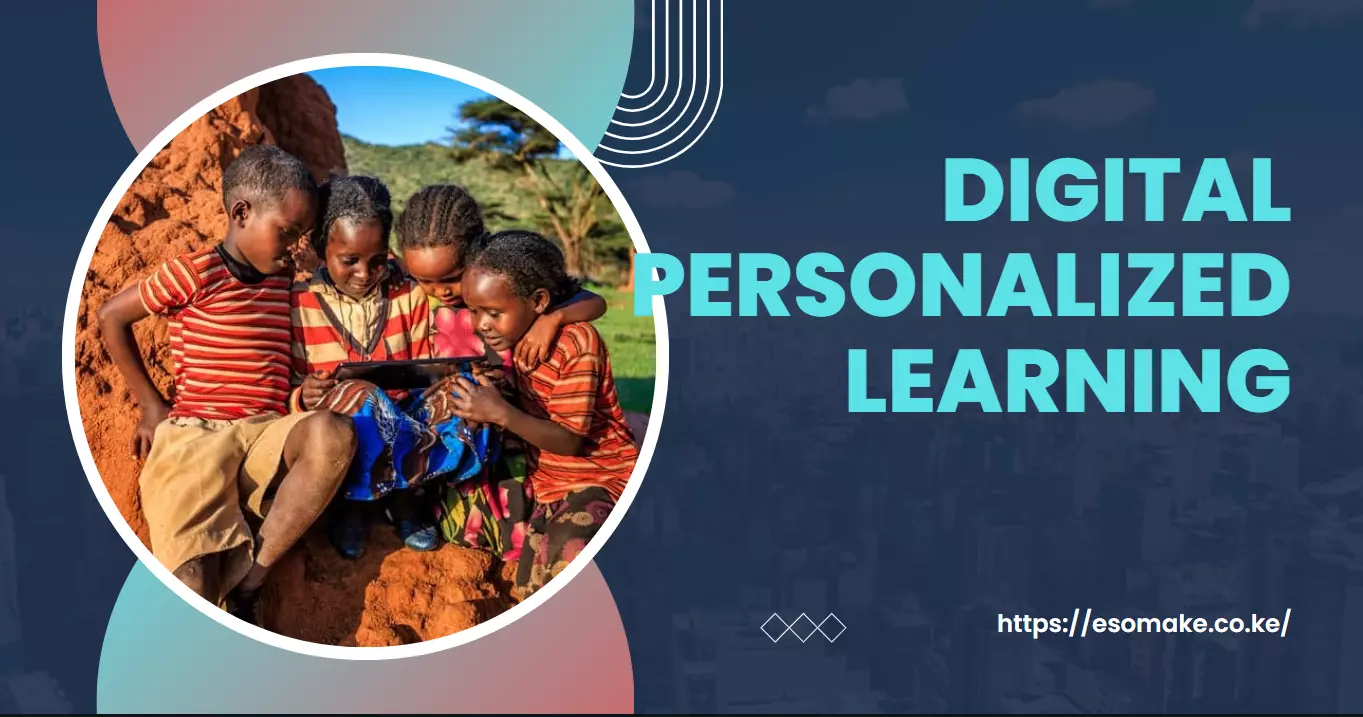Digital Personalized Learning in Africa: Transforming Education for Young Learners

In an era defined by digital innovation across all sectors, education stands as no exception. Educational organizations worldwide are earnestly striving to explore the possibilities and limitations of digital education. Among the myriad innovations, digital personalized learning (DPL) has emerged as a focal point, promising to revolutionize the way children aged 4-8 years old receive education in Africa. This article delves into the efforts to integrate DPL into African classrooms, emphasizing its potential to reshape learning outcomes in the region.
Sub-Saharan Africa faces significant educational challenges, with a stark disparity between the region and the global average in terms of basic education outcomes. The statistics are both concerning and motivating. According to available data, approximately 89% of children in Sub-Saharan Africa fail to achieve basic literacy and numeracy skills by the age of 10, a rate significantly higher than the global average. This alarming statistic underscores the urgent need for educational transformation in the region.
The Digital Revolution in Education
In response to this educational crisis, organizations such as the Global EdTech Hub joined forces with pioneering EdTech startups like EIDU and researchers to explore the potential of digital personalized learning (DPL). DPL leverages technology to tailor educational experiences to the individual needs of each student, offering a more dynamic and engaging learning environment.
DPL goes beyond the traditional one-size-fits-all approach to education and adapts to the unique learning styles, paces, and strengths of young learners. By harnessing the power of data and algorithms, DPL strives to make education not only accessible but also effective for children in Sub-Saharan Africa.
The Role of Evidence in DPL Integration
The heart of this endeavor lies in the collection of evidence to support the integration of DPL into African classrooms. To implement effective strategies, it is crucial to have a clear understanding of what works and what doesn't in digital personalized learning. Researchers are diligently working to gather data that can guide EdTech entrepreneurs and educators in their efforts to reshape the educational landscape.
Digital personalized learning, particularly in the context of Sub-Saharan Africa, aims to address the foundational skills of literacy and numeracy. These skills are essential for a child's educational journey, serving as the building blocks for future learning. Without a solid foundation, children may struggle throughout their academic careers, perpetuating a cycle of limited opportunities.
EdTech Initiatives in Kenya
Kenya, as a pioneer in the integration of EdTech solutions, offers a promising model for the adoption of digital personalized learning. Companies like Esoma Solutions are actively engaged in this pursuit, working tirelessly to integrate evidence-based DPL practices into the Kenyan educational system. Esoma Solutions, among other EdTech innovators, recognizes that evidence-driven approaches are essential for improving educational outcomes. Their dedication to leveraging technology and data to personalize learning experiences reflects the commitment of the entire education community in Africa to make a difference.
The Need for Collective Effort
While EdTech companies play a pivotal role, the successful integration of DPL into African classrooms necessitates a collective effort among all stakeholders. This includes governments, educational institutions, teachers, parents, and communities. Collaboration is key to ensuring that DPL reaches its full potential and yields the desired results.
Governments must create policies and allocate resources to support the adoption of DPL on a broader scale. Educational institutions need to embrace this paradigm shift and provide training for teachers to effectively leverage DPL tools. Parents and communities should actively engage with their children's education, recognizing the transformative impact of personalized learning.
Digital personalized learning represents a beacon of hope for Sub-Saharan Africa's educational challenges. By harnessing the power of technology and evidence-based practices, this innovative approach has the potential to bridge the gap in foundational literacy and numeracy skills. The urgency of the situation, with 89% of children unable to read and understand by age 10, underscores the importance of swift and collective action.
As organizations like the Global EdTech Hub, EdTech startups, and educational researchers continue to work hand in hand, the dream of providing a quality education to every child in Africa becomes more attainable. The journey towards a brighter future for young learners in Sub-Saharan Africa is a challenging one, but with the dedication and collaboration of all stakeholders, it is a journey worth embarking upon. Digital personalized learning holds the promise of transforming education in Africa, ensuring that no child is left behind in this digital dispensation.
